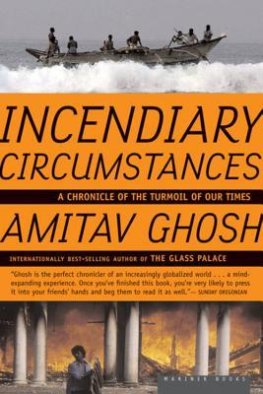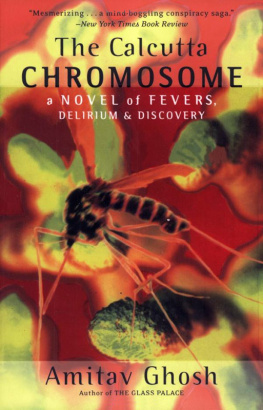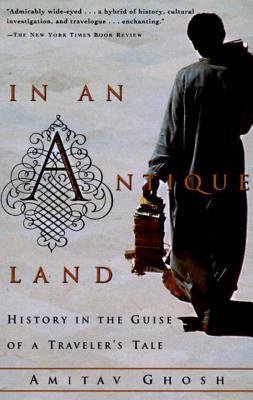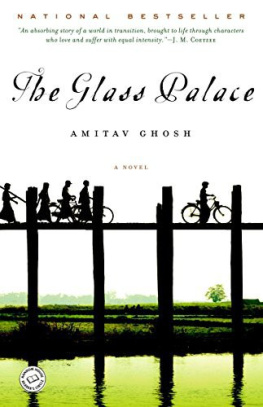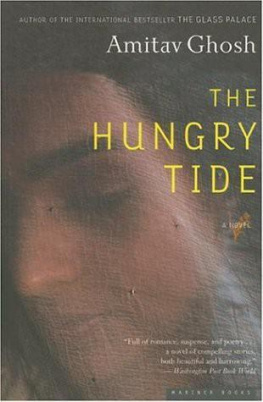Amitav Ghosh - The Shadow Lines
Here you can read online Amitav Ghosh - The Shadow Lines full text of the book (entire story) in english for free. Download pdf and epub, get meaning, cover and reviews about this ebook. year: 2005, publisher: Mariner Books, genre: Prose. Description of the work, (preface) as well as reviews are available. Best literature library LitArk.com created for fans of good reading and offers a wide selection of genres:
Romance novel
Science fiction
Adventure
Detective
Science
History
Home and family
Prose
Art
Politics
Computer
Non-fiction
Religion
Business
Children
Humor
Choose a favorite category and find really read worthwhile books. Enjoy immersion in the world of imagination, feel the emotions of the characters or learn something new for yourself, make an fascinating discovery.
- Book:The Shadow Lines
- Author:
- Publisher:Mariner Books
- Genre:
- Year:2005
- Rating:4 / 5
- Favourites:Add to favourites
- Your mark:
- 80
- 1
- 2
- 3
- 4
- 5
The Shadow Lines: summary, description and annotation
We offer to read an annotation, description, summary or preface (depends on what the author of the book "The Shadow Lines" wrote himself). If you haven't found the necessary information about the book — write in the comments, we will try to find it.
The Shadow Lines — read online for free the complete book (whole text) full work
Below is the text of the book, divided by pages. System saving the place of the last page read, allows you to conveniently read the book "The Shadow Lines" online for free, without having to search again every time where you left off. Put a bookmark, and you can go to the page where you finished reading at any time.
Font size:
Interval:
Bookmark:
Also by Amitav Ghosh
The Hungry Tide
Incendiary Circumstances
The Glass Palace
The Calcutta Chromosome
In an Antique Land
The Circle of Reason
Sea of Poppies
River of Smoke
Amitav Ghosh

www.johnmurray.co.uk
First published in Great Britain in 1988 by Bloomsbury Publishing Ltd
First published in 2011 by John Murray (Publishers)
An Hachette UK Company
Amitav Ghosh 1988
The right of Amitav Ghosh to be identified as the Author of the Work has been asserted by him in accordance with the Copyright, Designs and Patents Act 1988.
All rights reserved. Apart from any use permitted under UK copyright law no part of this publication may be reproduced, stored in a retrieval system, or transmitted, in any form or by any means without the prior written permission of the publisher.
All characters in this publication are fictitious and any resemblance to real persons, living or dead, is purely coincidental.
A CIP catalogue record for this title is available from the British Library
Epub ISBN 978-1-84854-423-9
Book ISBN 978-1-84854-417-8
John Murray (Publishers)
338 Euston Road
London NW1 3BH
www.johnmurray.co.uk
For
Radhika and Harisen
I n 1939, thirteen years before I was born, my fathers aunt, Mayadebi, went to England with her husband and her son, Tridib.
It startles me now to discover how readily the name comes off my pen as Mayadebi for I have never spoken of her thus; not aloud, at any rate: as my grandmothers only sister, she was always Mayathakuma to me. But still, from as far back as I can remember, I have known her, in the secrecy of my mind, as Mayadebi as though she were a well-known stranger, like a film star or a politician whose picture I had seen in a newspaper. Perhaps it was merely because I knew her very little, for she was not often in Calcutta. That explanation seems likely enough, but I know it to be untrue. The truth is that I did not want to think of her as a relative: to have done that would have diminished her and her family I could not bring myself to believe that their worth in my eyes could be reduced to something so arbitrary and unimportant as a blood relationship.
Mayadebi was twenty-nine when they left, and Tridib was eight.
Over the years, although I cannot remember when it happened any more than I can remember when I first learnt to tell the time or tie my shoelaces, I have come to believe that I was eight too when Tridib first talked to me about that journey. I remember trying very hard to imagine him back to my age, to reduce his height to mine, and to think away the spectacles that were so much a part of him that I really believed he had been born with them. It wasnt easy, for to me he looked old, impossibly old, and I could not remember him looking anything other than old though, in fact, at that time he could not have been much older than twenty-nine. In the end, since I had nothing to go on, I had decided that he had looked like me.
But my grandmother, when I asked her, was very quick to contradict me. She shook her head firmly, looking up from her schoolbooks, and said: No, he looked completely different not at all like you.
My grandmother didnt approve of Tridib. Hes a loafer and a wastrel, I would sometimes hear her saying to my parents; he doesnt do any proper work, lives off his fathers money.
To me, she would only allow herself to say with a sardonic little twist of her mouth: I dont want to see you loafing about with Tridib; Tridib wastes his time.
It didnt sound terrible, but in fact, in my grandmothers usage, there was nothing very much worse that could be said of anyone. For her, time was like a toothbrush: it went mouldy if it wasnt used. I asked her once what happened to wasted time. She tossed her small silvery head, screwed up her long nose and said: It begins to stink.
As for herself, she had been careful to rid our little flat of everything that might encourage us to let our time stink. No chessboard nor any pack of cards ever came through our door; there was a battered Ludo set somewhere but I was allowed to play with it only when I was ill. She didnt even approve of my mother listening to the afternoon radio play more than once a week. In our flat we all worked hard at whatever we did: my grandmother at her schoolmistressing; I at my homework; my mother at her housekeeping; my father at his job as a junior executive in a company which dealt in vulcanised rubber.
Our time wasnt given the slightest opportunity to grow mouldy.
That was why I loved to listen to Tridib: he never seemed to use his time, but his time didnt stink.
Sometimes Tridib would drop in to see us without warning. My grandmother, for all her disapproval of him, would be delighted whenever he came partly because she was fond of him in her own way, but mainly because Tridib and his family were our only rich relatives, and it flattered her to think that he had gone out of his way to come and see her.
But of course, she knew, though she wouldnt admit it, that he had really come to nurse his stomach. The truth was that his digestion was a mess; ruined by the rivers of hard-boiled tea he had drunk at roadside stalls all over south Calcutta. Every once in a while a rumble in his bowels would catch him unawares on the streets and he would have to sprint for the nearest clean lavatory.
This condition was known to us as Tridibs Gastric.
Once every few months or so we would answer the doorbell and find him leaning against the wall, his legs tightly crossed, the sweat starting from his forehead. But he wouldnt come in right away: there was a careful etiquette attached to these occasions. My parents and grandmother would collect at the doorway and, ignoring his writhings, would proceed to ask him about his familys doings and whereabouts, and he in turn, smiling fixedly, would ask them how they were, and how I was, and finally, when it had been established to everyones satisfaction that he had come on a Family Visit, he would shoot through the door straight into the lavatory. When he emerged again he would be his usual nonchalant, collected self; he would sink into our good sofa and the ritual of the Family Visit would begin. My grandmother would hurry into the kitchen to make him an omelette a leathery little squiggle studded with green chillies, which would lie balefully on its plate, silently challenging Gastric to battle. This was the greatest sign of favour she could show to a visitor an omelette made with her own hands (it fell to the less favoured to feast on my mothers masterly tidbits hot shingaras stuffed with mincemeat and raisins, or crisp little dalpuris).
Sometimes, watching him as he chewed upon her omelette, she would ask: And how is Gastric? or: Is Gastric better now? Tridib would merely nod casually and change the subject; he didnt like to talk about his digestion it was the only evidence of prudery I ever saw in him. But since I always heard my grandmother using that word as a proper noun, I grew up believing that Gastric was the name of an organ peculiar to Tridib a kind of aching tooth that grew out of his belly button. Of course, I never dared ask to see it.
Despite the special omelette, however, my grandmother would not let him stay long. She believed him to be capable of exerting his influence at a distance, like a baneful planet and since she also believed the male, as a species, to be naturally frail and wayward, she would not allow herself to take the risk of having him for long in our flat where I, or my father, might be tempted to move into his orbit.
Font size:
Interval:
Bookmark:
Similar books «The Shadow Lines»
Look at similar books to The Shadow Lines. We have selected literature similar in name and meaning in the hope of providing readers with more options to find new, interesting, not yet read works.
Discussion, reviews of the book The Shadow Lines and just readers' own opinions. Leave your comments, write what you think about the work, its meaning or the main characters. Specify what exactly you liked and what you didn't like, and why you think so.





